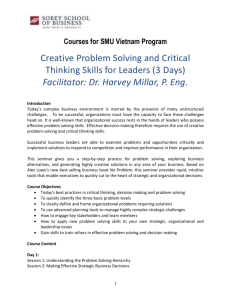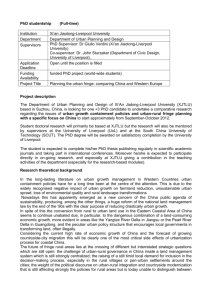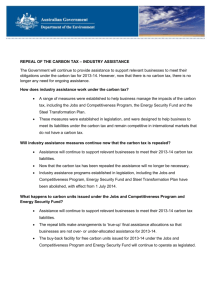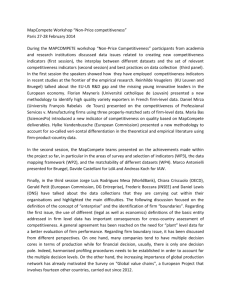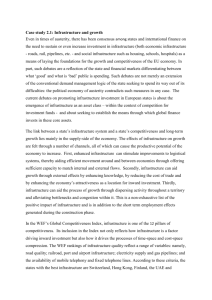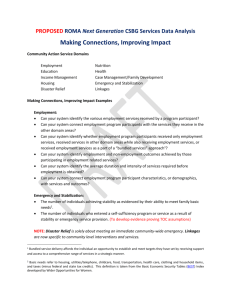Seminar organised by DG Regio on urban
advertisement
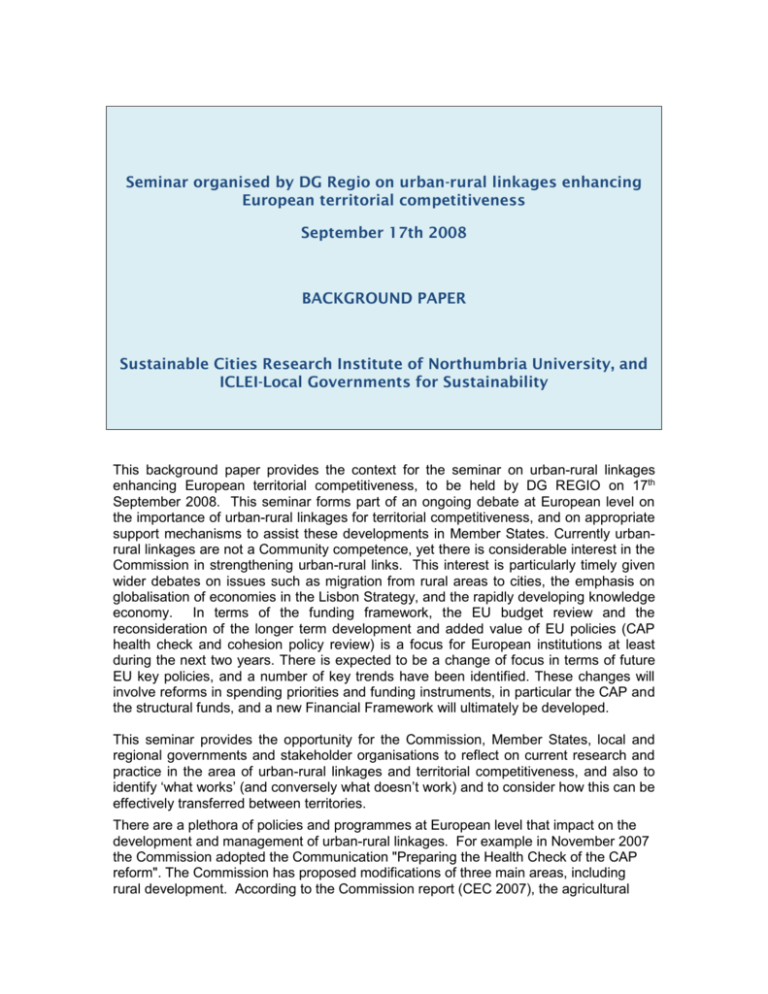
Seminar organised by DG Regio on urban-rural linkages enhancing European territorial competitiveness September 17th 2008 BACKGROUND PAPER Sustainable Cities Research Institute of Northumbria University, and ICLEI-Local Governments for Sustainability This background paper provides the context for the seminar on urban-rural linkages enhancing European territorial competitiveness, to be held by DG REGIO on 17th September 2008. This seminar forms part of an ongoing debate at European level on the importance of urban-rural linkages for territorial competitiveness, and on appropriate support mechanisms to assist these developments in Member States. Currently urbanrural linkages are not a Community competence, yet there is considerable interest in the Commission in strengthening urban-rural links. This interest is particularly timely given wider debates on issues such as migration from rural areas to cities, the emphasis on globalisation of economies in the Lisbon Strategy, and the rapidly developing knowledge economy. In terms of the funding framework, the EU budget review and the reconsideration of the longer term development and added value of EU policies (CAP health check and cohesion policy review) is a focus for European institutions at least during the next two years. There is expected to be a change of focus in terms of future EU key policies, and a number of key trends have been identified. These changes will involve reforms in spending priorities and funding instruments, in particular the CAP and the structural funds, and a new Financial Framework will ultimately be developed. This seminar provides the opportunity for the Commission, Member States, local and regional governments and stakeholder organisations to reflect on current research and practice in the area of urban-rural linkages and territorial competitiveness, and also to identify ‘what works’ (and conversely what doesn’t work) and to consider how this can be effectively transferred between territories. There are a plethora of policies and programmes at European level that impact on the development and management of urban-rural linkages. For example in November 2007 the Commission adopted the Communication "Preparing the Health Check of the CAP reform". The Commission has proposed modifications of three main areas, including rural development. According to the Commission report (CEC 2007), the agricultural sector faces challenges in 2008 that were not as pronounced in 2003. These challenges include the increased need for management of production risks, fighting climate change, more efficient management of water, making the most of the opportunities offered by bioenergy and the preservation of biodiversity. The best way of meeting them is seen as being through Rural Development policy, through increasing payments to the Rural Development budget. The European Regional Development Fund (ERDF) aims to strengthen economic and social cohesion in the European Union by correcting imbalances between its regions. The ERDF finances a number of areas which are clearly central to the enhancing of competitiveness through urban-rural integration: direct aid to investments in companies (in particular SMEs) to create sustainable jobs; infrastructures linked notably to research and innovation, telecommunications, environment, energy and transport; financial instruments (capital risk funds, local development funds, etc.) to support regional and local development and to foster cooperation between towns and regions; technical assistance measures. In terms of available support for networks of exchange on urban-rural issues, programmes such as INTERREG IIIC and LEADER + have helped Europe’s regions form partnerships to work together on common projects. By sharing knowledge and experience, these partnerships enable the regions involved to develop new solutions to economic, social and environmental challenges. Although focusing on urban sustainability, projects such as URBAN-NET, funded by the European Commission’s Framework 6 Programme under the European Research Area Network (ERA-NET) initiative can provide the impetus for developing urban-rural linkages. This seminar provides the opportunity for the Commission, Member States, local and regional governments and stakeholder organisations to reflect on the effectiveness of current European policies and funding programmes in aiding the development of urbanrural linkages that enhance territorial competitiveness. It is also important to identify ‘what works’ (and conversely what doesn’t work) and to consider how this can be effectively transferred between territories. There are clearly many examples of what could be termed ‘urban-rural development projects’ and also examples of initiatives that are explicitly set up to enhance economic competitiveness. For the purposes of this seminar three initiatives have been selected that we feel illustrate and stimulate debate on the possibilities for urban-rural linkages enhancing economic competitiveness (through for example the development of business clusters, cross-border tourism initiatives, and local food chains). These are the ‘Amsterdam Food Strategy’ in the Netherlands; the ‘Eifel Initiative for the Future’ in Germany; and KOBRA 2010 Urban-Rural Co-operation Bratislava.
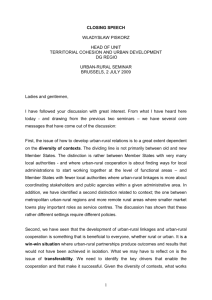
![[DOCX 51.43KB]](http://s3.studylib.net/store/data/007172908_1-9fbe7e9e1240b01879b0c095d6b49d99-300x300.png)
